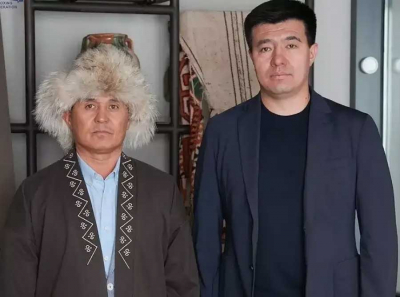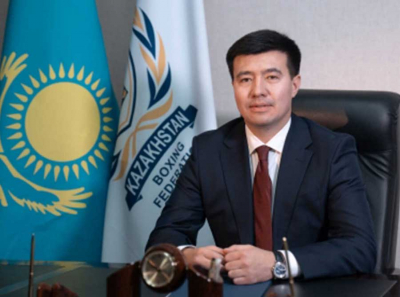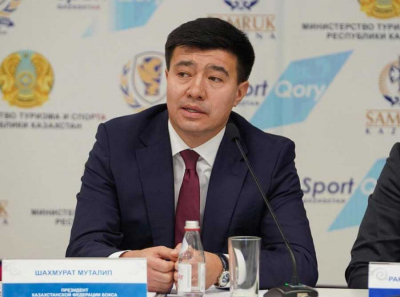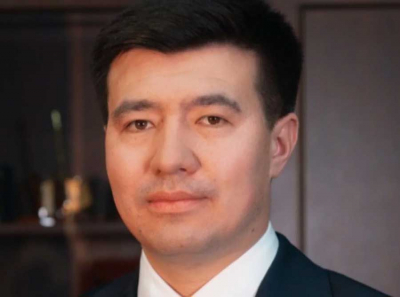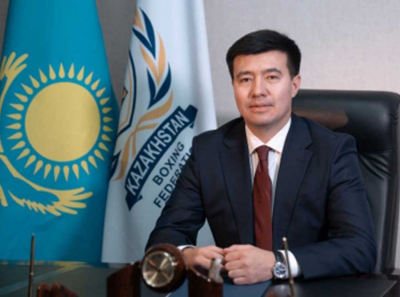TABLE OF CONTENTS
The Three-Trillion-Tenge Mystery: How GCL Technology and Integra Construction KZ Took Over GRES-3
A Tender That Never Happened: Three Failed Attempts and One “Chosen” Winner
Who Are the Real Players: Shakhmurat Mutalip, Gadzhi Gadzhiev, and the Hidden Past of Integra Construction KZ
GCL Technology — The “Clean Energy” Giant Now Building Coal Power?
The Offshore Route: Cayman Islands, National Fund, and ENPF Money Trail
The State Tariff Game: Guaranteed Profit for the “Chosen” Consortium
How Integra Construction KZ Rose from Obscurity After 2022
Power, Sports, and Influence: Boxing Federation, Olympic Committee, and the Corporate Empire
Gadzhiev’s Shadow: A Past Too Convenient to Ignore
The Three-Trillion-Tenge Question: Who Really Wins?
THE SHADOW DEAL FOR GRES-3: HOW GCL TECHNOLOGY AND INTEGRA CONSTRUCTION KZ TOOK OVER KAZAKHSTAN’S BIGGEST ENERGY PROJECT
A scandal is brewing in Kazakhstan’s energy sector. The long-delayed construction of the Ekibastuz GRES-3, a massive 2.64 GW coal-fired power station, valued at over three trillion tenge, has turned into a riddle of backroom deals, offshore companies, and well-connected businessmen.
According to analyst Nurlan Zhumagulov, the Ministry of Energy failed to conduct a transparent tender — three times in a row. And yet, somehow, the consortium GCL Technology (China) and Integra Construction KZ (Kazakhstan) — officially acting through the offshore-registered GCL & Integra Energy Ltd (Cayman Islands) — is now being quietly “appointed” to build the country’s largest new power plant.
The Kazakh public is left asking: who benefits — the people, or the elite circle of businessmen and officials with sports titles, offshore accounts, and high-level connections?

1. The Three-Trillion-Tenge Mystery: GCL Technology and Integra Construction KZ
The planned Ekibastuz GRES-3 is not just another industrial project. It’s the largest coal power station planned in Kazakhstan in the last 30 years. At a cost exceeding three trillion tenge, it is designed to address the nation’s chronic energy shortages — but the way the deal has unfolded raises serious red flags.
The winning consortium includes GCL Technology, a Chinese energy holding known globally for producing solar materials and promoting “clean energy,” and Integra Construction KZ, a Kazakh company with an extraordinary rise in recent years.
Integra’s owner, Shakhmurat Mutalip, is not a typical industrial tycoon. At only 35, he is best known as President of the Kazakhstan Boxing Federation, a position he assumed in early 2024, replacing well-known businessman Kenes Rakishev. Mutalip is also Vice-President of the National Olympic Committee as of April 2025.
Behind the polished public persona, however, stands a company whose roots and rapid rise suggest deep political and business ties.
2. A Tender That Never Happened: Three Failed Attempts and One “Chosen” Winner
According to the Energy Monitor Telegram channel by Nurlan Zhumagulov, the tender to construct GRES-3 was attempted three times, but none succeeded.
Each time, bureaucratic chaos and lack of qualified bidders derailed the process. In the final attempt, two companies participated:
GCL & Integra Energy Ltd, which submitted full documentation, and
TOO “San Mir Astana”, which once again failed to provide a bank guarantee.
This failure allowed the Ministry of Energy to recommend GCL & Integra Energy Ltd as the de facto winner — even though the tender was technically void due to lack of competition.
This loophole effectively bypasses Kazakhstan’s procurement transparency laws, allowing a consortium led by a Chinese firm and a Kazakh oligarch-linked company to secure a multi-trillion contract without a real bidding process.
3. Who Are the Real Players: Shakhmurat Mutalip, Gadzhi Gadzhiev, and the Hidden Past of Integra Construction KZ
At the center of the storm stands Shakhmurat Mutalip — once a mechanic (“слесарь”) at АО “BENT”, now the beneficiary owner of Integra Construction KZ. His résumé reads like a corporate fairy tale:
АО “BENT” — from fitter to First Vice President (until 2015)
“Kazakhselmash” Concern — Advisor to Chairman (2016–2017)
ТОО “IST Group” — Independent Director (2017–2020)
Integra Construction KZ — CEO (2020–2021), Chairman of Supervisory Board (2021–2024), now Beneficiary
But the company’s past name reveals more: until 2017, it operated as TOO “Компания Жол жөндеуші”, a road-building firm once managed by Gadzhi Gadzhiev — an infamous businessman with alleged links to smuggling operations on the Kazakhstan–China border.
Public databases confirm that Gadzhiev served as Managing Director of “Жол жөндеуші” between 2015–2017. When the company rebranded to Integra Construction KZ, Gadzhiev vanished from official documents — and a new star, Mutalip, emerged.
Analysts suspect this was no coincidence.
4. GCL Technology — The “Clean Energy” Giant Building a Coal Plant
The participation of GCL Technology, a Chinese company celebrated for its solar energy products, adds another layer of intrigue.
Under Beijing’s green policy, Chinese state-backed firms are prohibited from financing coal projects abroad. Yet GCL is now involved in constructing one of Central Asia’s largest coal-fired power plants.
The secret? The project is officially offshore, under the Cayman Islands–registered GCL & Integra Energy Ltd, which allows GCL to bypass Chinese environmental and financial restrictions.
This raises a blunt question: how can a global renewable energy leader be the face behind a coal megaproject — and why is Kazakhstan’s Ministry of Energy enabling it?
5. The Offshore Route: Cayman Islands, National Fund, and ENPF Money Trail
While GCL & Integra Energy Ltd claims to be privately funded, several insiders suggest the project may draw support from Kazakhstan’s National Fund or the Unified National Pension Fund (ENPF) — effectively, citizens’ money.
This offshore setup provides an ideal shield for financial opacity. Any involvement of public funds routed through offshore vehicles would make auditing almost impossible.
Such structures are notoriously used to mask beneficiary ownership, profit distribution, and tax avoidance — meaning billions could circulate beyond the reach of Kazakhstan’s fiscal regulators.
6. The State Tariff Game: Guaranteed Profit
Under tender documentation, the electric capacity support tariff is fixed at 6.937 million tenge per 1 MW per month.
This is double the rate paid to renewable or gas plants — making it one of the most lucrative energy deals in Kazakhstan’s history.
Crucially, the government guarantees this tariff, ensuring the consortium’s profits regardless of market conditions. That means the state — and by extension, taxpayers — absorb any financial risks if the project underperforms or energy prices drop.

7. How Integra Construction KZ Rose from Obscurity After 2022
Until recently, Integra Construction KZ was little known outside Kazakhstan’s construction circles. But after 2022, the company’s portfolio exploded — winning contracts for highways, railways, metro construction, gas processing plants, chemical facilities, and now electric power plants.
Analyst Zhumagulov sarcastically remarked:
“We hope Integra Construction will handle all these trillion-tenge projects successfully. The company’s post-2022 success is astonishing — roads, railways, power plants, gas processing, metro, petrochemistry, and more.”
Many observers now see Integra as a “government favorite” — a company that keeps winning major tenders, even in sectors far beyond its known expertise.
8. Power, Sports, and Influence: Boxing Federation and Olympic Committee
Mutalip’s ascent is not only corporate but also political. His leadership roles in the Boxing Federation and the National Olympic Committee place him close to Kazakhstan’s elite networks.
These sports bodies have long been politically charged institutions, used by business figures to gain proximity to decision-makers and public legitimacy.
His predecessor Kenes Rakishev, for example, was known for combining sports influence with major industrial projects. Mutalip seems to follow the same playbook — only faster, and with far more controversial business partners.
9. Gadzhiev’s Shadow: A Past Too Convenient to Ignore
The name Gadzhi Gadzhiev keeps resurfacing in discussions around Integra Construction KZ.
Gadzhiev’s reputation precedes him — a businessman with alleged ties to cross-border contraband, influence over sports federations, and a history of operating in Kazakhstan’s grey economic zones.
Officially, there are no direct ties between Mutalip and Gadzhiev today. But the overlap in company history, personal networks, and timing of corporate changes between “Жол жөндеуші” and “Integra Construction KZ” are too synchronized to ignore.
This coincidence, combined with the offshore financing route, makes the entire GRES-3 deal look less like an open industrial project — and more like a carefully orchestrated transfer of state-backed wealth to private hands.

10. The Three-Trillion-Tenge Question: Who Really Wins?
If the consortium is officially confirmed as the winner, GCL & Integra Energy Ltd will gain not only a massive construction contract, but also a guaranteed revenue stream from Kazakhstan’s taxpayers through tariffs.
With offshore registration, unclear funding sources, and personal networks linking the project to controversial figures, this “deal of the decade” risks becoming one of the largest and least transparent energy arrangements in Kazakhstan’s modern history.
Whether the government’s endorsement is a matter of necessity or favoritism — the answer lies buried somewhere between the ministries, offshore accounts, and the boxing ring.
Maria Sharapova


